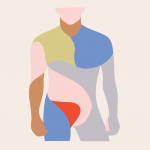Chronic Lymphocytic Leukemia (CLL): Overview
This in-depth overview shares everything people who've been diagnosed with chronic lymphocytic leukemia (CLL) need to know, complete with insights and advice from leading medical experts.
Explore popular chronic lymphoctic leukemia (CLL) articles and topics
For further information on your diagnosis and treatment options, check out SurvivorNet’s simple guide to Living With CLL.
Explore popular chronic lymphoctic leukemia (CLL) articles and topics
For further information on your diagnosis and treatment options, check out SurvivorNet’s simple guide to Living With CLL.
What Are the Symptoms of CLL?
It's uncommon for people with CLL to have symptoms early in the disease, according to SurvivorNet’s experts. They say someone can live with CLL and feel perfectly fine.
People often have no symptoms of CLL until their disease has progressed, says Dr. Matthew Davids, Associate Director of the Dana-Farber CLL Center
After you've had this cancer for awhile, you may notice symptoms like:
- Swollen lymph nodes
- Tiredness
- Fever
- Pain in the upper left part of your belly
- Night sweats
- Weight loss
- Frequent infections
If you have any of these symptoms, it doesn't necessarily mean that you have CLL. But it's worth talking to your doctor if they're out of the norm for you.
Getting a Diagnosis
Your doctor has several ways to diagnose CLL, including blood tests, genetic tests, bone marrow tests, and imaging tests.
- Blood tests. A blood test checks the number of cells and cell types in your blood, to look for any abnormalities that could signal CLL. Your doctor might also check for increased amounts of certain proteins or enzymes in your blood.
- Flow cytometry. This test looks for certain markers that help identify cancer cells in a sample of blood or bone marrow.
- Bone marrow tests. These tests use a small sample of fluid or tissue that your doctor removes from your bone marrow during a biopsy. The samples are examined in a lab to see if they have the size, shape, and other characteristics of cancer.
- Genetic tests. Tests such as fluorescence in situ hybridization (FISH) analyze the genetic material inside the leukemia cells to look for abnormalities. This gives doctors a better sense of how to move forward with treatment.
SurvivorNet expert, medical oncologist Dr. Julie Vose, discusses the importance of genetic testing following a CLL diagnosis
You may need additional tests, including x-rays and imaging scans, if there's a possibility that the cancer has spread to other parts of your body. If your doctor is concerned that leukemia cells might have reached your brain or spinal cord, you may get a spinal tap, which analyzes a small sample of fluid from around the spinal cord.
Symptoms & Diagnosis
Which Treatment is Right for You?
Unlike other cancers, CLL is a chronic disease that people can live with for many years. Your doctor will find the most appropriate treatment for you based on the type of symptoms you have, and whether your cancer is growing slowly or is more aggressive.
In the early stages of CLL, treatment might not be necessary. Your doctor may do something called watchful waiting. This doesn't mean that your doctor will ignore you, but that you'll get regular check-ups to see if your symptoms get worse or your cancer has spread.
Dr. Nicole Lamanna, on how your doctor will monitor you after your diagnosis
Once it is time to start treatment, your doctor will help you choose from these options:
- Radiation therapy uses high-energy x-rays to stop cancer cells from growing.
- Chemotherapy uses powerful drugs to stop cancer cells all over your body from dividing.
- Targeted therapy is a group of treatments that blocks proteins and other substances the cancer needs to grow.
- Immunotherapy such as CAR T- cell therapy amplifies your own immune system’s response to help it locate and fight the cancer.
- Bone marrow (stem cell) transplant is a way for your doctor to give you very high doses of chemotherapy. Chemo damages immature blood cells, called stem cells, in your bone marrow. After you get chemotherapy drugs, you'll receive healthy stem cells from yourself or a donor to replace the ones treatment damaged.
These are the standard treatments for CLL, but they're not the only ones. BTK inhibitors are a pill you take every day to reduce the chance of the cancer coming back. Another is venetoclax (Venclexta), which comes in a pill. This is typically combined with another type of drug called a monoclonal antibody, to keep people with this cancer in remission. You’ll need to stay on these drugs long-term to keep your cancer from returning.
New treatments are keeping people with CLL in remission longer, says Dr. Julie Vose
If you've tried a number of therapies and they stopped working for you, or if you want to add on another treatment to boost the effectiveness, your doctor might recommend that you enroll in a clinical trial.
Dr. Matthew Davids, on how clinical trials are helping doctors discover new and more effective CLL treatments
Clinical trials test out new, and possibly more effective treatments for cancers like CLL. Enrolling in one of these trials could give you access to a state-of-the-art drug before it's available to everyone else.
CLL is a long-term disease. That means you'll probably stay in close touch with your oncologist for many years to come. Your doctor will do regular check-ups to monitor for any delayed side effects of your treatment, and to see if your cancer has come back. Going to every scheduled appointment can help ensure that if your cancer does return, you can get on treatment quickly to stop it.
Treatment

Please confirm you are a US based health care provider:
Yes, I am a health care Provider No, I am not a health care providerSign Up Now.
Take Control of Your Disease Journey.
Sign up now for expert patient guides, personalized treatment options, and cutting-edge insights that can help you push for the best care plan.




